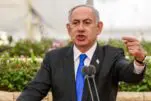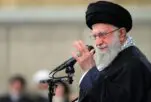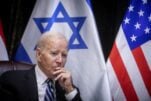
U.S President-elect Joe Biden will inherit responsibility for securing U.S interests in a divided and tumultuous Middle East. The task to repair the damage of the Obama and Trump years – two administrations that hurt Washington’s reputation in the Arab world – could prove too daunting.
Under the Obama administration, where Biden served as Vice President, the Arab world failed to stop the bloodshed in Syria and to penalize Egypt for sliding back into authoritarianism. Trump, for his part, pulled out of a nuclear deal with Iran and encouraged a rift in the Gulf that pitted the United Arab Emirates (UAE) and Saudi Arabia against Qatar.
Biden must restore trust in U.S leadership. However, his own resume raises concern among progressives in the Arab world. Biden, after all, endorsed the 2003 invasion of Iraq which effectively fragmented the country, nurtured the grounds for terrorism, and facilitated Iranian hegemony over the country. Now Biden seems to have adopted the slogan of U.S progressives by vowing to end ‘forever wars.”
But conflicts in the Middle East will continue regardless if the U.S assumes a central role in mediating disputes, or not. Biden’s objectives are nonetheless clear: He’ll seek to restore diplomacy with Iran, assuage tensions between America’s competing allies, and bring Turkey back under the sphere of NATO’s influence.
Brokering a new version of the Iran nuclear deal will be Biden’s largest priority. Trump’s maximum pressure strategy merely hardened Iran’s distrust of Washington and punished Iranian civilians, especially as the population struggled to combat the covid-19 virus.
Winning back Tehran’s trust won’t be easy, yet Biden can start with a few goodwill gestures such as removing impediments that prevent Iran from buying medical supplies to combat Covid-19. Easing sanctions on some of Iran’s senior officials could also persuade Tehran to return to the negotiating table in good faith.
Neither Saudi Arabia nor the UAE will welcome these moves. Both countries fear a new nuclear deal that results in sanctions relief for Iran. The fear isn’t completely unfounded since Tehran could use its financial resources to double down on support for its militia proxies such as Lebanon’s Hezbollah and Yemen’s Houthis. Obama’s nuclear deal with Iran, for instance, was inked at the expense of Syrian civilians. Nevertheless, Trump’s ‘maximum pressure’ policy only antagonized Iran, prompting Tehran to use its proxies to disrupt U.S interests across the Arab world.
Biden has also vowed to hold Saudi Arabia’s powerful Crown Prince, Mohamad bin Salman (MBS), accountable for the brutal assassination of Washington Post journalist Jamal Khashoggi. It’s uncertain if the U.S can obtain any type of human rights concessions from MBS. However, the Saudi kingdom still relies on U.S protection as a client state, knowing full well that it doesn’t have the military power to secure its borders from its nemesis Iran.
That said, observers shouldn’t expect the Saudi/American relationship to fundamentally change, except regarding the war on Yemen. Biden has vowed to end support for Saudi Arabia’s violent aerial campaign that has created a humanitarian disaster.









